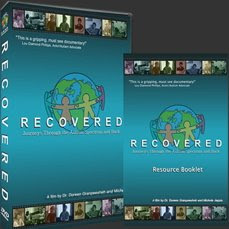Chaminade College Preparatory School will raise their voices in harmony this holiday season for autism care and treatment.
Chaminade College Preparatory College in the Southern California town of West Hills, will host a “Share in the Holiday Spirit with the Voices of Chaminade Harmony Choir” on Saturday, December 19, 2009 at Temple Aliyah located at 6025 Valley Circle Boulevard in Woodland Hills, CA.
 The concert will benefit Autism Care and Treatment (ACT-Today!), a non profit organization that provides access to treatment for children with autism. "Chaminade College Preparatory encourages students and clubs to actively, "give back," as part of our mission statement. Harmony Chorus is delighted to be able to support the autism fund raiser by adding our voices to this wonderful cause,” says Choir Director Paulette Mann.
The concert will benefit Autism Care and Treatment (ACT-Today!), a non profit organization that provides access to treatment for children with autism. "Chaminade College Preparatory encourages students and clubs to actively, "give back," as part of our mission statement. Harmony Chorus is delighted to be able to support the autism fund raiser by adding our voices to this wonderful cause,” says Choir Director Paulette Mann.
"We are always thrilled when people use their talents to help families with autism,” says ACT Today!’s Executive Director Nancy Alspaugh-Jackson. “The students at Chaminade are amazing and we are grateful to be on the receiving end of their generous holiday spirit as they raise funds for ACT Today!.”
A suggested donation of $10 will be collected at the door. The concert begins at 6pm and is followed by a reception from 7pm – 9pm.
For more information about the concert and to RSVP, contact ACT Today! at 818.705.1625 or email at info@act-today.org.
About Chaminade College Preparatory School:
The Chaminade “C-NOTES” is a non-auditioned choir open to all boys and girls in grades 6-8. The choir performs throughout the school year. The Chaminade C-Notes perform at Disneyland each year and traditionally travel on a singing tour each year during Spring Break.
About Autism Care and Treatment (ACT Today!):
ACT Today! provides grant money for families that cannot afford or access the treatments their autistic children need. From protective helmets, to social skills groups, to ABA and biomedical treatments, ACT Today! does everything they can to help autistic children achieve their highest potential. Through direct donation, corporate sponsorship and community generosity, ACT Today! is changing the lives of children TODAY. For more information about ACT Today, visit www.act-today.org.
 The concert will benefit Autism Care and Treatment (ACT-Today!), a non profit organization that provides access to treatment for children with autism. "Chaminade College Preparatory encourages students and clubs to actively, "give back," as part of our mission statement. Harmony Chorus is delighted to be able to support the autism fund raiser by adding our voices to this wonderful cause,” says Choir Director Paulette Mann.
The concert will benefit Autism Care and Treatment (ACT-Today!), a non profit organization that provides access to treatment for children with autism. "Chaminade College Preparatory encourages students and clubs to actively, "give back," as part of our mission statement. Harmony Chorus is delighted to be able to support the autism fund raiser by adding our voices to this wonderful cause,” says Choir Director Paulette Mann.
"We are always thrilled when people use their talents to help families with autism,” says ACT Today!’s Executive Director Nancy Alspaugh-Jackson. “The students at Chaminade are amazing and we are grateful to be on the receiving end of their generous holiday spirit as they raise funds for ACT Today!.”
A suggested donation of $10 will be collected at the door. The concert begins at 6pm and is followed by a reception from 7pm – 9pm.
For more information about the concert and to RSVP, contact ACT Today! at 818.705.1625 or email at info@act-today.org.
About Chaminade College Preparatory School:
The Chaminade “C-NOTES” is a non-auditioned choir open to all boys and girls in grades 6-8. The choir performs throughout the school year. The Chaminade C-Notes perform at Disneyland each year and traditionally travel on a singing tour each year during Spring Break.
About Autism Care and Treatment (ACT Today!):
ACT Today! provides grant money for families that cannot afford or access the treatments their autistic children need. From protective helmets, to social skills groups, to ABA and biomedical treatments, ACT Today! does everything they can to help autistic children achieve their highest potential. Through direct donation, corporate sponsorship and community generosity, ACT Today! is changing the lives of children TODAY. For more information about ACT Today, visit www.act-today.org.







